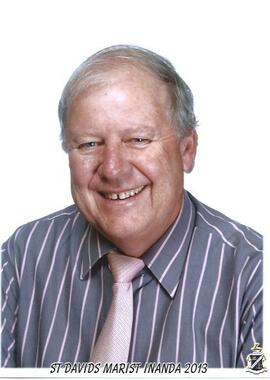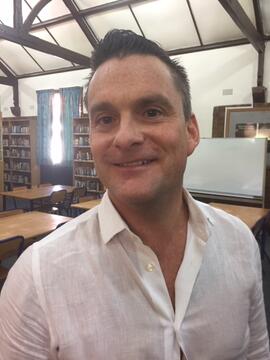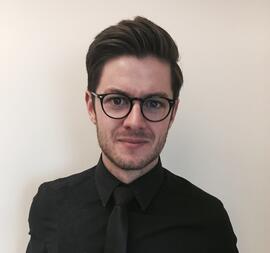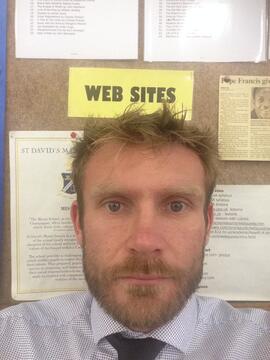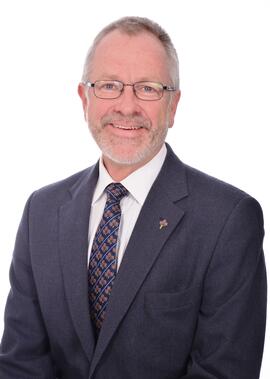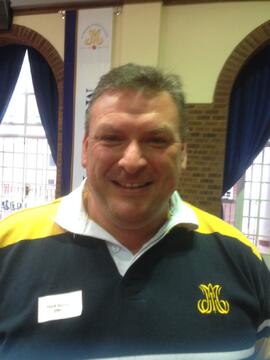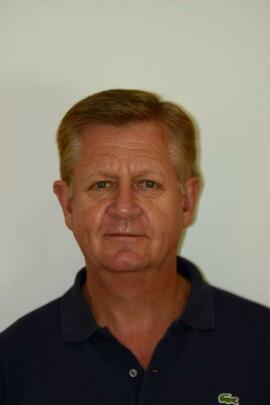As the oldest in my generation of cousins, my Judu would insist that I say a speech at
important family functions. If I did not meet my Judu’s high standards of public speaking, he
would not say a word to me. If I spoke well, he would walk up to me, give me a kiss on my
cheek and whisper in my ear, “you talk just like your Judu”. So Juds, here it goes. Once
again I will try talk just like you.
Good afternoon Reverend Fathers, and all of Nassey’s Humrees and Darlings.
My name is Gaby Simaan, Jnr, a grandson of an icon and legend of the South Africa
Lebanese community.
Nassey Simaan - The head of the Simaan family, husband to Agnes. Father and father in
law to Gabe and Jane, Antoine and Kathy, the late Linda Rose, Andy and Shirley, Marie Lou
and Saki. The grandfather of Gaby, Jeanine, Karen, Deirdre, Warren, Sean, Samantha,
Gareth, Candyce, Jason and Luke. The great grandfather of Nicholas, Gabriella, Cristina,
Connor, Mathew, Taylor, Daniel, Jessica, Meagan, Troy, Joshua and Jonathan. Sister to
Louise. Nephew to Aunty Isabel. Friend and mentor of hundreds . On behalf of Nassey’s
children – I have been honoured with the task to pay tribute to the great life of Nassey
Simaan and the impact that he has left behind.
Born on the 5th April 1922, in Bethal, Nassey was the oldest child of Gibran and Rosy
Simaan. Nassey grew up in Bethal, where his father owned the local Cafe. At the age of 16,
his father, who he always spoke so highly of, passed away. Nassey was sent to boarding
school in Uitenhage. That is when our family’s tradition with Marist Brothers schools began
and Nassey learnt to speak English. When he matriculated in 1939 he had been awarded his
school honours blazer, after receiving colours in athletics, rugby and for being a prefect. He
was also awarded the title of Victor Ludorum due to his athletic achievements. He
represented EP schools in athletics and rugby.
It was Nassey’s dream to go to university to study law. Unfortunately with his father’s
passing, the family was struggling financially and he needed to start working in order to
support his mother, sisters Dorothy and Louise, and his brother Ramsey. This was
something I only learnt this week from aunty Louise. With all the stories my grandfather told
us, not once did he mention, how he had to give up going to university for his family.
With the war breaking, Nassey joined the army and was deployed to Europe and Northern
Africa as a wireless operator. He took advantage of being sent to all the different countries
by visiting as many churches and religious sites as he could.
The first time my Gran met Judu was when she was working in the OK Bazaars as a cashier.
They were introduced by Judu's best friend at the time - Freddy Michael. Freddy was
actually going out with my Gran at the time and subsequently got engaged to Gran. Nassey
felt that he was far more deserving of this young Lebanese gem. He suddenly developed a
passion for shopping at OK. It was not long till my Gran gave into his relentless charm and
called off her engagement. As only Nassey could get right, he convinced Fred that it was
the right thing and God’s will. The 2 remained close friends. My grandparents were married
for 64 years!
My grandfather followed a career as a travelling salesman. He was known in the motor spare
industry as “King of the road” With a charm second to none; he had friends and contacts in
2
every town you can think of. The family originally lived in Mayfair and later moved to
Buccleuch, where my grandparents stayed for 35 years. My grandfather struggled
financially. Things were tough for the family. When they saw a strange car coming down the
long drive way, it was more than likely the sherriff. The sons would grab the family’s
precious belongings and run to hide them by the river so the sheriff could not reposess them.
Judo told us how, my dad would hide in the bushes and shoot the sherriff’s car with his pellet
gun to deter him from coming back. Sometimes there was no money for bus fare for the
children to get back from school. The boys would have to walk home - All the way from
Inanda to Buccleuch. Despite all these hardships, my grandfather made sure that money
was found for his children to receive a top class education at a catholic school. He kept his
family together, entrenching the highest morals and values in his children. The reason why
the Simaan family is so close and strong today is all because of our leader – My Judu.
One of Nassey’s greatest accomplishments was his role as the Marist Inanda’s first team
rugby coach. During his 3 year reign, the school enjoyed their greatest success with records
that still stand today. His players from this era all say how there were no superstars in their
team. They were a small bunch of very average rugby players. Nassey focused on the
weakest, smallest and scaredest players in the team. It was through the self confidence and
motivation that my grandfather instilled in them, together with his immense knowledge,
strategy and love for the game, that they were able to achieve what they did. Not only did
Nassey’s loud voice assist the boys in the matches as he marched up and down the
touchline, but his athletic abilities too. Apparently more than once, Nassey’s wing would get
the ball with a gap in the defence. Nassey would be in line with the wing. With a cigarette in
his mouth, Nassey would take off at the same time the wing broke, and sprint down the
touch line screaming instructions. By the time the wing made it to the try line, Nassey was
already there waiting for him. Last year, my grandfather’s most successful team had their 40
year school reunion. They invited him as their guest of honour. Nassey’s rugby talents and
passion for the game was passed onto my dad Gabe. Judo spoke with such pride of my
dad’s rugby achievements. His favourite story was about my dad kicking a penalty over from
the halfway line, into the torrential rain and howling Cape wind, to beat Marist Brothers
Rondebosch by 1 point. He loved telling me that my father would have been a Springbok, if
he did not discover women and put them before the game.
Nassey was a founding member of The Sandton Bird Club. He organised many trips away
for the club. The members have many fond memories of these well organised trips. Besides
the Birds, Nassey‘s entertainment was the main attraction of the trips. If he did not have
everyone listening to his stories and jokes, he would be singing for them in Arabic or
Afrikaans. Last year they celebrated their 25th anniversary. Nassey was invited as an
honouree member. Although he had not been active in club for some time, he insisted on
saying a speech and entertained his old and new members late into the evening.
We all know how religious my grandfather was. He was a true warrior and defender of our
catholic faith, the Maronite Church, the priests, and Our Lady. His love and commitment to
Holy Mary is unmeasurable. His knowledge of our faith and the bible was immense. It ever
we had a question about the bible; Judu would be the first and only person we needed to
ask. Once I even heard a priest ask Judu for clarification on a verse in the bible. Nassey was
on the original Maronite parish council that advocated for this church to be built. Despite the
criticism they endured, they stuck to their dream and after much perseverance, the
commission to build this church was granted. For many years after this church opened, Judu
3
occupied this exact space on this alter. While Father Mardi was giving his sermon, Nassey
would walk around the perimeter of the church to make sure everything was in order. At the
same time he would be counting the number of people so that he could monitor that the
church’s attendance numbers were growing. It stressed him out and he would call for an
urgent meeting with the priests if he picked up a negative trend in the numbers. When it was
time in the service for the announcements, there would be a sudden change in the mood of
the congregation as Nassey Simaan made his way onto the altar. Everyone sat up and the
silence grew even greater. You never knew what to expect, except that there would be no
mincing of words. Judu felt nothing to tell the people to stop being stingy and instead of
wasting their money at the casino to rather donate it to St Charbel’s Helping Hand. Judu
would often take the opportunity of this time on the alter to talk about how great our lady is
and share stories of miracles she performed in Lourdes, Fatima and the best village in
Lebanon, where his father was born – Maghdouche. Nassey was the greatest ambassador
of Our Lady. He had no mercy on anyone you dared to mention a negative word about her.
He would say : “how can you really love Jesus if you are not prepared to honour and praise
the person our Lord loved and was so close to when on earth – his holy mother?” The best
way that we can honour Nassey today is by glorifying Our Lady!
Judu tried to go to church every day. Even when on holiday in Mauritius, Marie Lou, Saki
and my Gran would travel an hour to get to the closest catholic church. They would sit
through the French service cramped in the small church, suffering with the December heat.
Nassey’s first words when he got back into the car.”What a lovely sermon!” Sakie would
pack up laughing, my Gran would look down and gently shake her head and Marie Lou
would explode “How can you say that! Since when did you learn to speak French?” Every
day at 3 pm, something on Judu would start ringing. It was his alarm to remind him to say his
Novena. Nassey was an apostle of the Divine Mercy. He is responsible for it being practiced
by so many in this parish and the Rivonia Catholic church. I could talk for hours on what
Nassey has done for our church and our Lady. Apparently there will be an article in the next
Arch Diocese newspaper, honouring Nassey and his role in the church. This article was
written and planned before his passing. It’s such a pity that he will not get to read how he
has been honoured and thanked by our Church, but I am sure he has now been thanked
directly by God, Jesus and Our Lady.
Judu was so proud off all his children’s success. He visited my dad and Andy’s offices daily.
He would make his way round the office, greeting and kissing all the ladies hello. It was not
enough to simply say hello. He had to ask them how their family’s were and then had tell
them a story, which typically was about Lebanon or the best travel agent in the country –
Marie Lou, the best importer of motor spares - Antoine or his grandchildren . Once Andy
called all his staff in due to his companies escalating phone bill. They were all warned with
their jobs to stop making so many personal calls which was costing company thousands.
When the bill was even higher the next month, Andy dug deeper to find the guilty person.
The culprit – Nassey... Calls to Lebanon!
Judo drove my poor uncle Antoine mad with his shopping list every time Antoine was going
to Europe or China for business. Eventually Antoine needed to book an extra day on every
trip to try and find Judu’s rare model trains or catholic books that were not available in SA.
With the amazing son that Antoine is, no matter how busy he was, he always did his best to
come home with what my Judo had asked for. If Judo heard someone could not find
something in the shops, he was quick to offer Antoine’s services – don’t worry, my son
4
Antoine will get it for you overseas. Marie Lou being the youngest was always her father’s
baby. They had an extraordinary bond. Judo would often say to Mars, God has taken my
beautiful daughter Linda away from me, but has blessed me by giving me you. Mars, you
proved just how true these words are with all that you did for Judo when he got sick.
Judu loved visiting his family in Lebanon. After his first trip, he returned with the title deeds of
the properties his father owned in Lebanon. We thought that the land had been lost and
taken over in the war. You can imagine the excitement of my family’s re found wealth in our
homeland.
After his second trip, Judu returned with more documents. This time it was transfer papers.
My Judu had given all the land away to his cousins in Lebanon. He felt they needed it more
than we did. When Andy took his family to Lebanon a few years ago, his cousins took Andy
to see the properties. They felt so guilty they even offered to give some of it back. Such was
the massive charitable heart of Nassey Simaan.
On one of Nassey’s visits to Andy’s office, he asked Andy’s secretary where Andy was. She
explained to Judu that Andy was in the boardroom, trying to close a deal with the executives
of a leading financial institution and under no circumstances could be disturbed. Judu
ignored the instruction and walked into the Boardroom unannounced. He was wearing his
shorts, long socks and sandals. In his hand was a tray of Koeksisters. Hello everyone he
shouted. Shut up! I am his father. I am selling koeksisters for St Charbel’s helping hand.
Only 50c. Where’s your money? Is that all you have! My son said you are rich. Thank you
my Humree. Bless you. By bye dad! And out he walked with money for St Charbel.
On the 25th Aug 1985, my grandparent’s lives were shattered with the sudden death of their
daughter Linda Rose. After 28 years, Judu still mourned for her bitterly. And like my Gran,
never even got close to healing this wound and loss in their lives. When Judu was diagnosed
with Alzheimer a year ago, the only consolation I could find in this dreadful disease and turn
of events was that possibly this painful memory and loss could be wiped from Judu’s
memory. It never happened. At least now Judu is with aunty Linda. Not only is he with her in
heaven, but the urn with Linda’s ashes, has been placed next to Judu, in his coffin.
The last year has been very tough on my family. Watching a loved one getting so frail is
devastating. On behalf of my gran and family, thank you to all the people who were so kind
to him during this time. A very special thank you to Marie Lou, Sakie and my mom Jane.
They sacrificed so much of their time to help Judu in every way possible. Jane was Judu’s
nurse during the day while granny was at work. Her patience and kindness is remarkable
and a true reflection of her love for Nassey. Sakie, the family is totally in awe with what you
have done. You have been a pillar for Mars and granny. You could not do enough for Judu.
Whether it was taking him to the doctor, dressing him, or getting out of bed to go to Judu’s’
house when he could not turn on the TV, you did it with a smile and with such kindness.
When Judu was still well, Marie Lou and granny would prowl the shops in Sandton City
every Saturday afternoon. Sakie was left to watch sport with Judu. Although they were very
close, Judu and Sakie did not see eye to eye on which team to support. Judu was a die hard
lions and Man united supporter. Sakie – Sharks and Liverpool. When the Sharks were
playing the Lions, the common result was the Sharks would win. As soon as the Sharks
started leading, Judu would turn off the TV. Despite Sakie’s pleas, Judu refused to turn it
5
back on saying it was rubbish. Sakie then got his revenge with the soccer, as soon as
Liverpool went a goal down against Man U Sakie turned the TV off.
Judu, I can just imagine the chaos in heaven since you left us. You,walking around with
aunty Linda, greeting all your old friends and family. Hello my Humree! Come give me a kiss.
How’s mommy and daddy? Bless you darling, bless you..... Who was that Linda? We all
must expect our prayers to take a little longer to be answered as Jesus and Mary’s time has
been consumed by Judo in the last few days. Telling them all his stories, singing for them
and getting the answers and clarification to the questions he had planned for them.
Judu we are going to miss you so much! The Simaans are so grateful for the family that you
have created. The Lebanese community is so grateful for their legend, and I am sure God,
Jesus and Our Lady are so grateful for what you have done for our faith. We love you Juds.
Watch over us always.

